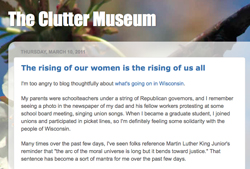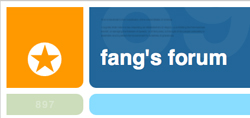[With some of my staff in the IDEA Shop, I’ve organized a one-day institute on using Open Educational Resources in higher ed. I compiled this resource for the institute, and I thought it would be of use to some of this blog’s readers. You can also view it in Google Drive, download it, and revise it for your own use.]
Compiled by the IDEA Shop in the Center for Teaching and Learning at Boise State University.
Getting started
Backward design
It’s best not to start with a search for open educational content. Instead, use with the backward design process:
- Determine what you expect students to be able to do at the end of the lesson, module/unit, or course. These are your learning outcomes.
- Articulate how students will demonstrate they have achieved these learning outcomes. These are your assessments.
- Plan how students will engage with learning materials to prepare for the assessments.
When you’re ready to look for content and other learning materials
There are three primary ways to use existing OER:
- Find a piece of OER and use it as-is.
- Take a piece of OER and trim or revise it to meet your needs.
- Take several pieces of OER and aggregate or synthesize them (“remix” them) into a new compilation, using them either as they are or with revisions.
You can also, of course, create your own materials and release them under an open license.
Be sure to keep your eye on licenses. Some resources, for example, permit you to share them, but not revise or remix them.
OER textbooks
Many authors and organizations have released open textbooks. Some of these you need to share with students as-is; with others, you can select chapters from multiple sources, remixing them into a new textbook.
You can search for open textbooks at the following places:
Open textbook library
http://open.umn.edu/opentextbooks/
Supported by the Center for Open Education and the Open Textbook Network, this collection includes books that have been reviewed by faculty from a variety of colleges and universities to assess their quality. These books can be downloaded for no cost, or printed at low cost. All textbooks are either used at multiple higher education institutions; or affiliated with an institution, scholarly society, or professional organization.
OpenStax
https://openstax.org/higher-ed
OpenStax makes it easy for faculty to review and adopt OER textbooks. OpenStax also offers additional free instructor-only resources like test banks and solution manuals to help plan a course. The textbooks have been peer-reviewed and are available in multiple formats, including low-cost print versions.
OpenStax CNX
OpenStax CNX is a non-profit digital ecosystem containing tens of thousands of learning objects organized into thousands of textbook-style books in a host of disciplines, all easily accessible online and downloadable to almost any device, anywhere, anytime.
Textbook Revolution
http://www.textbookrevolution.org/index.php/Book:Lists/Subjects
Textbook Revolution is a student-run site dedicated to increasing the use of free educational materials by teachers and professors. On this site you’ll find links and reviews of textbooks and select educational resources. Some of the books are PDF files, others are viewable online as ebooks, or some are simply web sites containing course or multimedia content. (Not all content is OER; check licenses carefully.)
The Teaching Commons
The Teaching Commons brings together high-quality open educational resources from leading colleges and universities. Curated by librarians and their institutions, the Teaching Commons includes open access textbooks, course materials, syllabi, lesson plans, multimedia, and more.
Open courses from Lumen Learning
http://lumenlearning.com/browse-courses/
Lumen offers online textbooks in several disciplines. The textbooks are free to use, and you can customize their textbooks for your classroom. If you would like to have Lumen package up one of their textbooks (edited by you or not) for integration with your Blackboard site, there is a small per-student fee (around $5).
The College Open Textbooks Collaborative
http://www.collegeopentextbooks.org/textbook-listings/textbooks-by-subject
This collection of 29 educational non-profit and for-profit organizations affiliated with more than 200 colleges encourages the adoption of open textbooks, particularly at the community college level. This may be a good resource for your lower-division courses. Some of the textbooks are presented in the form of online courses, and some of these—such as this 12-hour-long Holocaust course from The Open University—can be downloaded as a Creative Commons-licensed ebook.
Community College Open Textbook Collaborative, on MERLOT II
https://www.merlot.org/merlot/viewPortfolio.htm?id=334314
A list of 180 textbooks from many disciplines, covering topics as diverse as linear algebra, epidemiology, African American studies, and marketing.
The OER Commons
https://www.oercommons.org/browse?batch_size=20&sort_by=title&view_mode=summary
A large collection of all kinds of educational resources, from audio to textbooks to full courses and case studies. Be sure to select the appropriate educational level (lower division, upper division, graduate/professional) from the drop-down menu at the left of the screen.
MIT Open Courseware
http://ocw.mit.edu/courses/online-textbooks/
Teaching materials from MIT, licensed under a Creative Commons license (license details).
Open Course Library
The Open Course Library (OCL) is a collection of shareable course materials, including syllabi, course activities, readings, and assessments designed by teams of college faculty, instructional designers, librarians, and other experts. Some of our materials (also called open educational resources, or OER) are paired with low cost textbooks ($30 or less). Many of the courses can be taught at no cost to students. Unless otherwise noted, all materials are shared under a Creative Commons (CC BY) license. OCL courses and materials have undergone testing for accessibility and have been designed using the industry-standard Quality Matters (QM) rubric for assessing the quality of online courses.
The Open Learning Initiative (OLI)
OLI offers online courses faculty can use or adapt on the OLI platform or in Blackboard and other learning management systems. OLI is a grant-funded group at Carnegie Mellon University, offering innovative online courses to anyone who wants to learn or teach. Its aim is to create high-quality courses and contribute original research to improve learning and transform higher education.
Open SUNY Textbooks
http://textbooks.opensuny.org/
Open SUNY Textbooks is an open access textbook publishing initiative established by State University of New York libraries and supported by SUNY Innovative Instruction Technology Grants. This pilot initiative publishes high-quality, cost-effective course resources by engaging faculty as authors and peer-reviewers, and libraries as publishing service and infrastructure.
College Open Textbooks
http://www.collegeopentextbooks.org/
This repository contains a large number of textbooks across a wide swath of disciplines. The site includes content reviews and accessibility reviews of several textbooks.
BC Open Textbook Project
https://open.bccampus.ca/find-open-textbooks/
Open textbooks licensed using a Creative Commons license and offered in various ebook formats free of charge, or print on demand books available at cost.
Beyond textbooks: Sources of public domain and Creative Commons-licensed content
Find OER
Offers annotated links to various public domain and Creative Commons-licensed search engines. (OER = open educational resources)
Creative Commons search
http://search.creativecommons.org/
Provides several places to search for Creative Commons-licensed material.
USA.gov
https://search.usa.gov/search/images?affiliate=usagov&query=
Searches across government websites for images and video. Select from “images” or “video” tabs above the search box to refine your search.
The Internet Archive
A non-profit library of millions of free books, movies, software, music, and more. Check licenses carefully.
Library of Congress digital collections
http://www.loc.gov/library/libarch-digital.html
Some, but not all, of the Library of Congress’s digital collections are in the public domain.
Digital Public Library of America
Aggregates digitized resources from library collections. (Creative-Commons BY 3.0 license: http://dp.la/info/terms/)
Flickr Commons
(note: this is different from Flickr Creative Commons)
https://www.flickr.com/commons
In the Flickr Commons, museums and libraries around the world release images that anyone can use.
Harvard Law Library, “Finding Public Domain and Creative Commons Media”
http://guides.library.harvard.edu/Finding_Images/finding_audio
An explanation of the public domain and Creative Commons, as well as a compilation of places to find public domain and Creative Commons-licensed materials.
Public Domain Review, “Guide to Finding Interesting Public Domain Works Online”
http://publicdomainreview.org/guide-to-finding-interesting-public-domain-works-online/
A compilation of sources of public domain material, as well as an explanation of Creative Commons and the public domain.
The Getty’s Open Content Program
http://www.getty.edu/about/opencontent.html
Nearly 100,000 images in the J. Paul Getty Collection are available for download and open use.
SoundBible, “Royalty Free Sounds”
http://soundbible.com/royalty-free-sounds-1.html
A compilation of free sounds released under various licenses.
NASA audio collection in the Internet Archive
https://archive.org/details/nasaaudiocollection
Sounds from NASA, in the public domain.
NASA on SoundCloud
Sounds from NASA, in the public domain.
The Public Domain Project
Thousands of historical media files for your creative projects.
Public Domain Sherpa
http://www.publicdomainsherpa.com/index.html
This site helps you determine whether something is in the public domain and thus available for your use.
Public Domain Sherpa, “Where can you find public domain recordings?”
http://www.publicdomainsherpa.com/public-domain-recordings.html
A list of sites where you can find audio to remix or use as-is.
Pdsounds
Volunteers record and share sounds.
Vimeo Music Store
Has free music tracks available through Creative Commons, as well as tracks you can purchase for use in film projects. You must have/create a Vimeo account to access this.
YouTube Audio Library
https://www.youtube.com/audiolibrary/music
Free and ad-supported music you can download through YouTube. You must have a Google email account to access this.
The Orange Grove
https://florida.theorangegrove.org/og/hierarchy.do?topic=8dff349b-9c2f-07d0-f24b-5d854bbc4812
A broad range of OER materials for higher education, including recorded lectures, syllabi, and activities.
Project Gutenberg
http://www.gutenberg.org/wiki/Main_Page
Offers more than 50,000 free ebooks; some may not be openly licensed.
Learn more about OER or get involved in an OER project
Open Education Resource Foundation
http://wikieducator.org/OERF:Projects
The Open Education Resource (OER) Foundation is an independent, not-for-profit organization that provides leadership, international networking and support for educators and educational institutions to achieve their objectives through Open Education.
Edutopia’s Open Educational Resources Roundup
http://www.edutopia.org/open-educational-resources-guide
Explore this educator’s guide to open educational resources for information about online repositories, fair use, curriculum-sharing websites, sources for lesson plans and activities, and open alternatives to textbooks.
Rubrics for evaluating OER resources
http://achieve.org/files/AchieveOERRubrics.pdf
An evaluation system for objects found within Open Education Resources. (An object might include images, applets, lessons, units, assessments, and more.) For the purpose of this evaluation, any component that can exist as a stand-alone qualifies as an object. The rubrics in this digital packet may be applied across content areas and object types.
Kirkwood Community College OER Resources
http://guides.kirkwood.edu/opentextbooks
This site is packed with resources on OER, including where to find and how to use OER, fair use guidelines, and OER projects at colleges and universities.
Active Learning and OER
Some examples of how to use active learning with OER materials in an online course.

Finding and Using Open Educational Resources by The IDEA Shop, Center for Teaching and Learning, Boise State University is licensed under a Creative Commons Attribution-NonCommercial-ShareAlike 4.0 International License.

